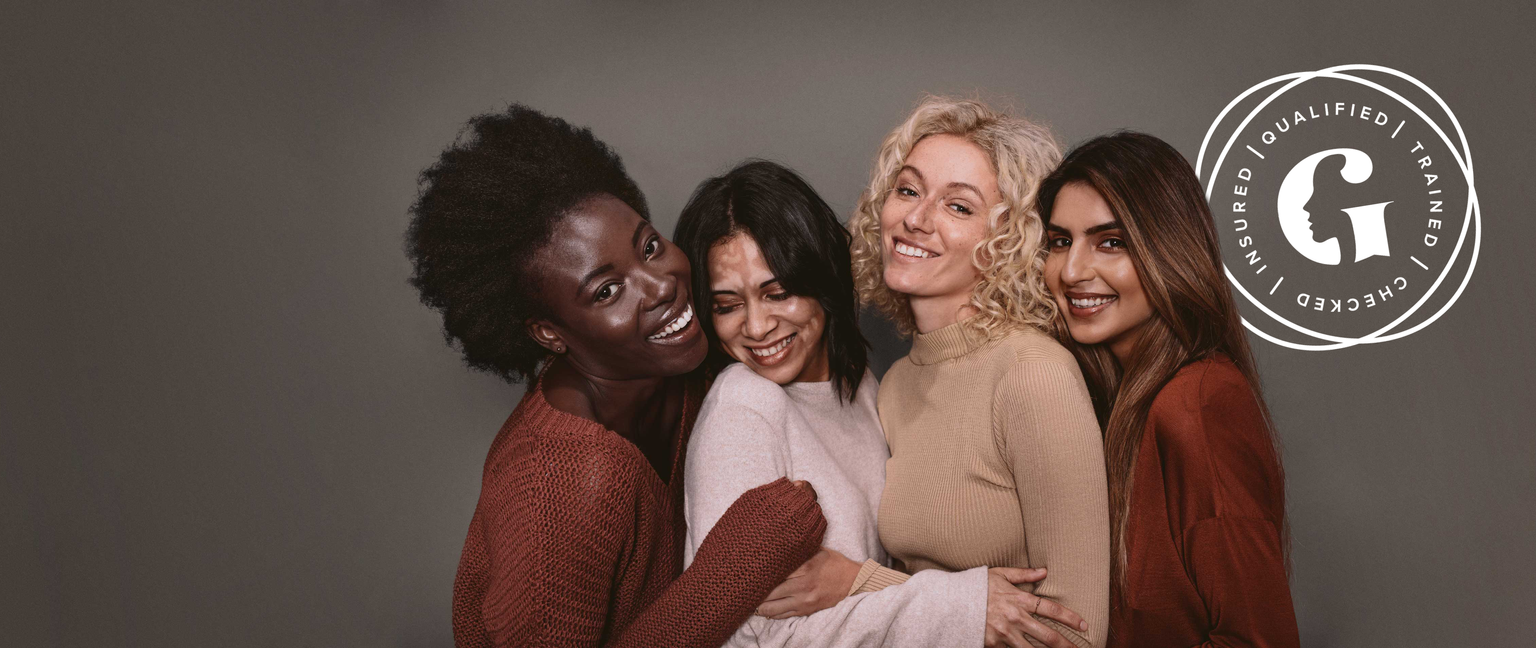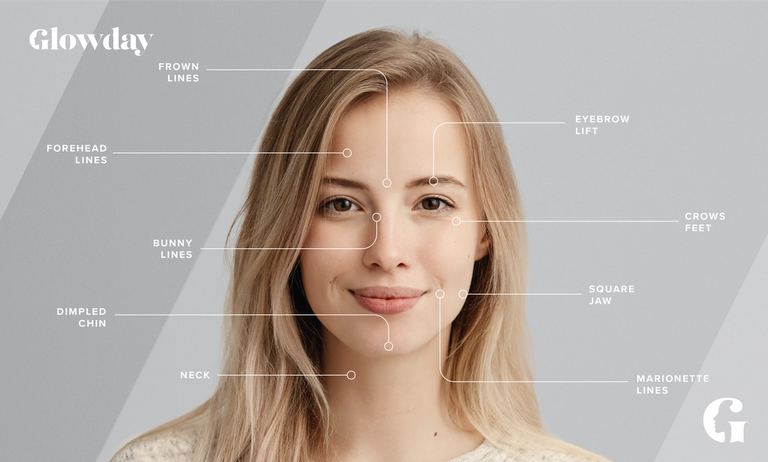
The best Botox in Leeds
We only feature the best Botox practitioners near you who we have vetted to ensure that they’re medically qualified, trained and insured. Click on their profile to read their real patients' reviews and to see their before and after photos.
Wrinkle Relaxing - At A Glance
Top Questions
Anti-wrinkle Injections Overview
Anti-wrinkle injections are often used to relax muscles of the face, helping to reduce or completely eliminate wrinkles, particularly those that occur due to facial expressions. It is the treatment of choice for forehead lines, crow's feet and lines between the eyebrows (11s). It can also be used to treat lines in the lower face, such as smokers’ lines, and to lift e.g. the eyebrows or the corners of the mouth. In addition to being used to reduce the appearance of wrinkles, it can also treat headaches and reduce a gummy smile, teeth grinding and excess sweating.
Botulinum toxin drugs such are potent neurotoxins derived from the bacterium Clostridium botulinum.
These drugs are all tried, tested and proven and are licensed for use in the UK. They contain one common substance, the botulinum toxin (produced by the bacterium Clostridium botulinum).
This toxin is highly potent. Tiny amounts are injected into the muscles identified as those causing the wrinkles. The injections are just beneath the skin, making wrinkle relaxing the most popular aesthetic treatment due to the lack of downtime needed and proven results.
In the UK, botulinum toxin is in two forms:
Type A
Type B
This Glowday Treatment Guide has been edited and medically verified by Andrew Rankin.
How do wrinkle relaxing injections work?
During an anti-wrinkle injection treatment, botulinum toxin is safely injected into specific muscles, in extremely small therapeutic quantities.
It works by prohibiting signals from the nerve cells reaching muscles, therefore paralysing them. It does this by preventing the release of a chemical transmitter called acetylcholine from nerve endings onto muscle cells, reducing the contraction of these muscles.
The muscle becomes temporarily paralysed and remains relaxed until the toxin has been broken down by your body. This reduces the movement of the skin above the treated muscle, causing a reduction in the formation and appearance of wrinkles.
The effects of wrinkle relaxing treatments last between 3-6 months. How often you need anti-wrinkle injections can depend on the dose administered but more often it’s about individual responses to treatment and the rate at which your body breaks down the toxin. Repeat treatments are required to maintain the desired effect of any anti-wrinkle injections.
What are wrinkle relaxing injections used for?
There are a number of uses of wrinkle relaxing treatments. It can be used for:
- Forehead lines
- Bunny lines
- Softening or defining the jaw angle
- Crow’s feet (around your eyes)
- Eyebrow lift
- Frown lines/11s

- Marionette lines
- Neck lines
- Chin dimples
- Gummy smile
- Mouth droop
- Lipstick lines
Botulinum toxin can also be used to prevent excessive sweating (hyperhydrosis) and it has also been reported to have a positive effect on reducing headaches and migraines.
Ideal candidates for anti-wrinkle injections are those who have dynamic wrinkles that are visible when their face is moving. If you have deeper, static wrinkles (which are present even when your face isn’t moving), you may require a combination of dermal fillers and wrinkle relaxing to achieve the desired outcome.
How should I prepare for wrinkle relaxing injections?
A week before your anti-wrinkle treatment, avoid taking aspirin, ibuprofen, vitamin E and fish oil supplements. These may increase bleeding and bruising. However, you can take paracetamol if needed.
If you are taking any prescribed medication, including aspirin, do not stop taking it – consult your practitioner or your GP first.
Avoid drinking alcohol 24 hours before your treatment, as this also increases the risk of bruising.
What happens during a wrinkle relaxing treatment?
What happens after an anti-wrinkle treatment?
After your treatment, you can go about your normal day. It is important, however, that you follow the advice of your practitioner carefully. This will help you gain maximum effect from the procedure and reduce the risk of complications.
You may experience localised redness and pin-prick marks around the injection sites.
To help get the best out of your anti-wrinkle treatment, you need to:
- Avoid rubbing or massaging the treated area and avoid strenuous exercise for 24 – 48 hours after treatment, or as your practitioner advises. Failure to do so may result in the toxin moving into muscles it shouldn't.
- The treatment takes around 72 hours to begin working and 2 weeks for the effects to be fully visible, although you may feel most of the effect after 7 to 10 days.
- Contact your practitioner if you have any unusual results such as prolonged bruising, swelling, irritation, infection or drooping.
What are the side effects and risks of anti-wrinkle treatments?
Most clients find botulinum toxin injections to be relatively painless and straightforward.
A small minority of clients choose to have a topical numbing cream applied to the area 20-30 minutes prior to the treatment. If you feel you have a low pain threshold, be sure to put this on your medical history form, so your practitioner can apply the cream early in your consultation.
Some wrinkle relaxing side effects include:
- Temporary bleeding/bruising
- Mild swelling
- Post-treatment headache
- Drooping eyelids
- Drooping eyebrows
More serious side effects can occur for treatment of other areas (e.g. double vision, drooping lip, difficulty swallowing or breathing, change of voice or difficulty pronouncing some words.
This list is not exhaustive and you should consult your practitioner if you are concerned in any way.
DO NOT have botulinum toxin injections if:
- You are pregnant or breastfeeding
- You are trying to get pregnant
You also need to let your practitioner know if:
- You have a muscular disease (e.g. Bell's Palsy)
- You have any blood or nervous system disorders
- You are taking any medications which affect blood clotting
- You are taking any medicines
- You have any psychological concerns
How much do wrinkle relaxing injections cost?
Botulinum toxin injections are usually charged per area, although your practitioner may offer discounts for multiple areas.
Expect to pay from £175 - £300 per area.
Beware of very cheap prices. It may be that these practitioners are not using licensed products of botulinum toxin or they may not be appropriately medically qualified.